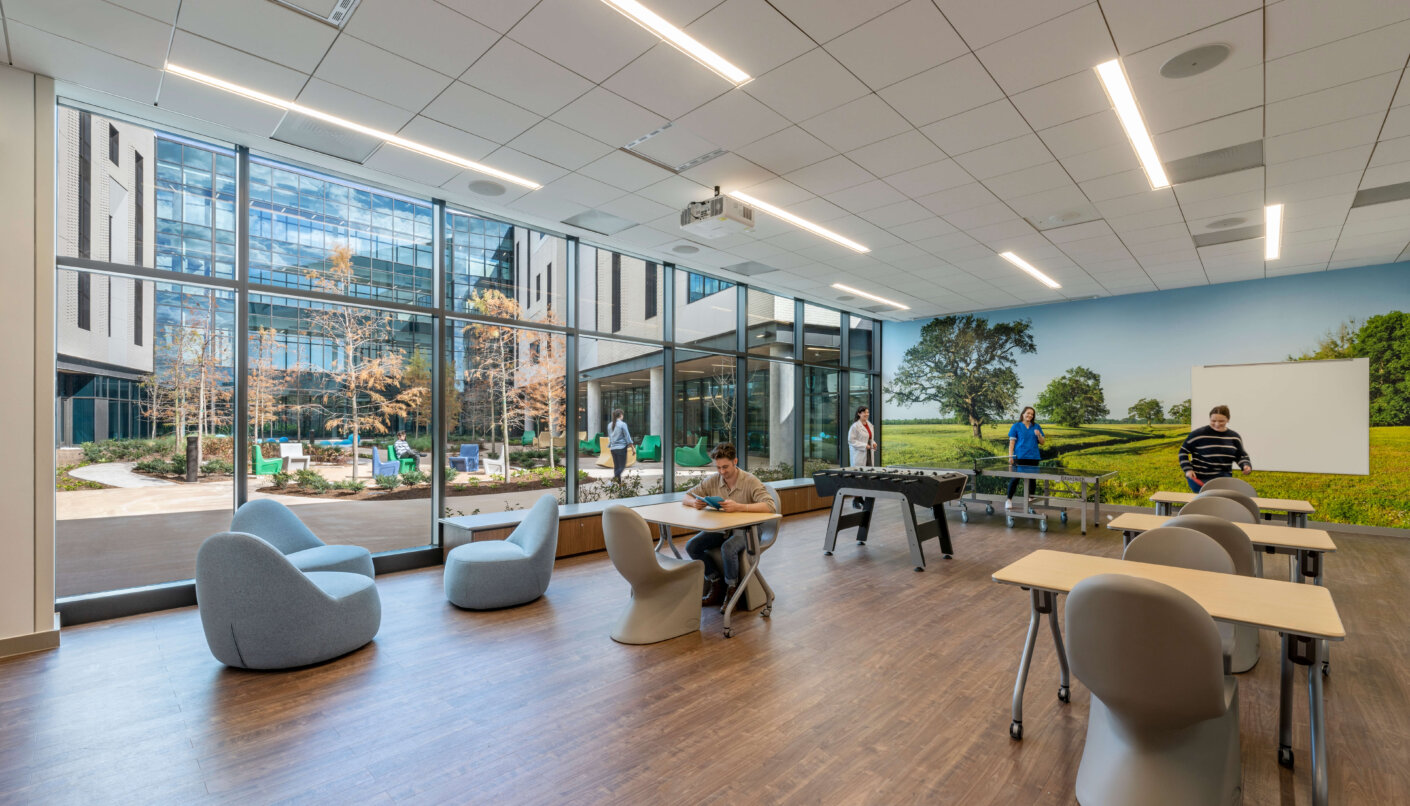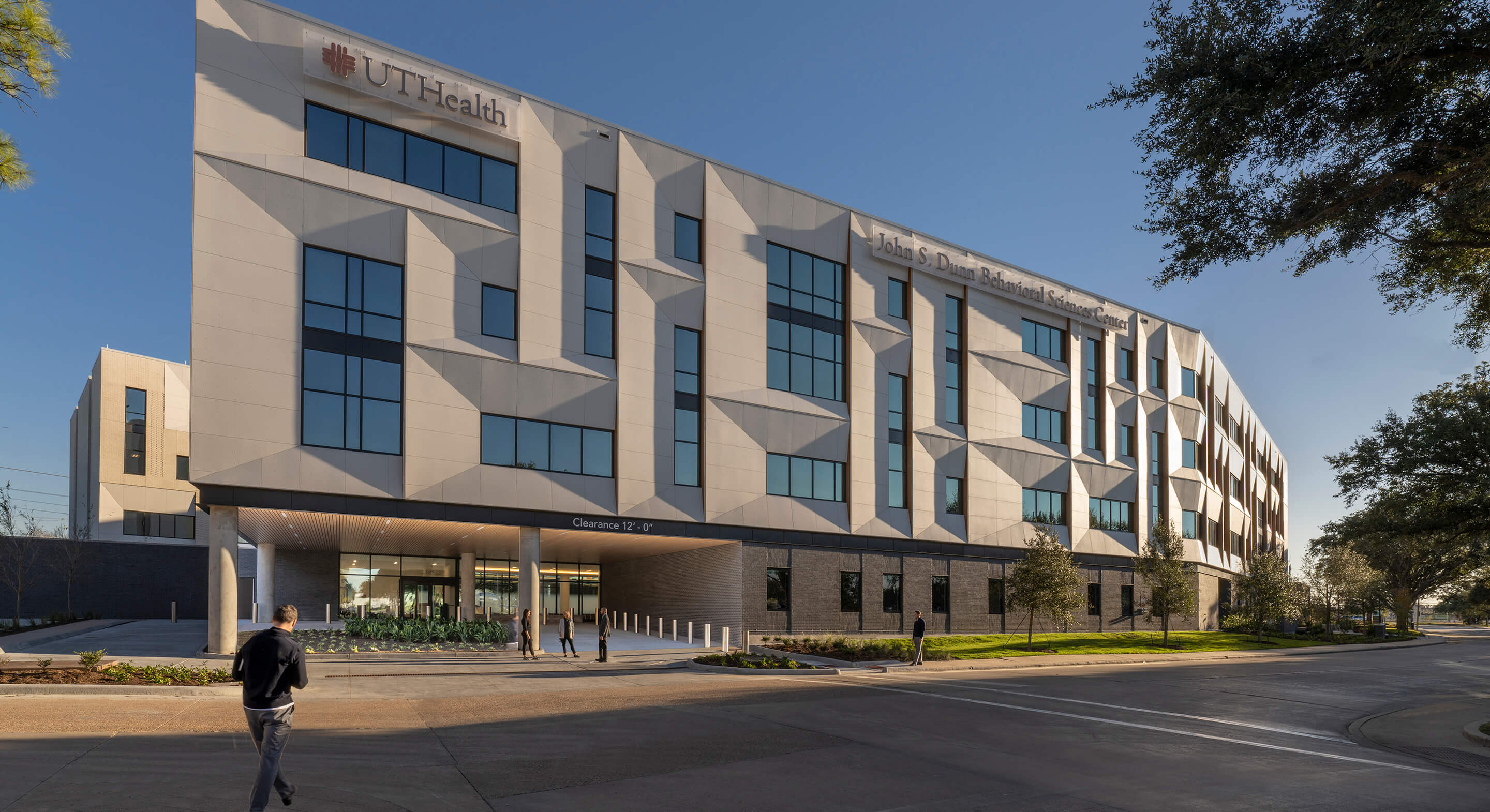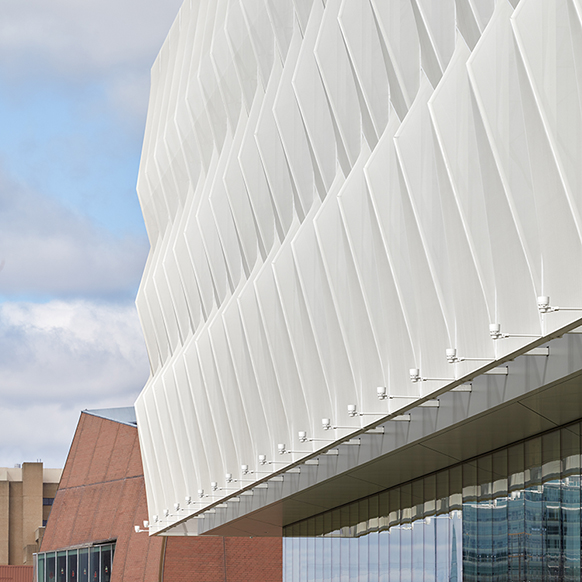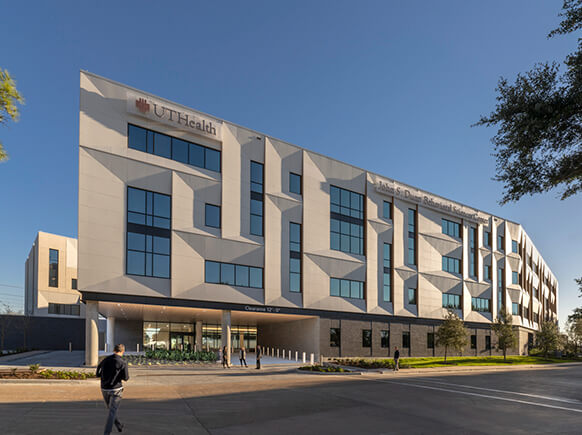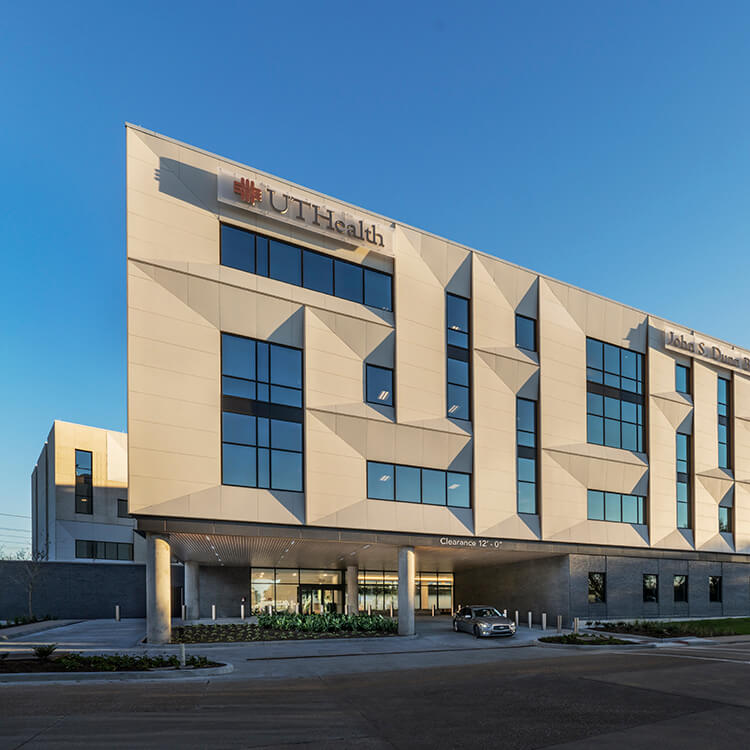
John S. Dunn Behavioral Sciences Center
A statewide shortage of mental health professionals and patient beds can make it difficult for Texans with behavioral health disorders to get the support they need. The leaders behind the new UTHealth Behavioral Sciences Center aim to change that by bringing behavioral health close to home, reducing the stigma of treatment, and empowering patients across a wide spectrum of mental health needs.
Perkins&Will designed each space in the complex to naturally aid appropriate and beneficial interactions between patients and staff. To that end, the design team ensured that residential units are situated around a central living area, promoting engagement amongst residents. Additional amenities include a therapy mall, activity room, and a communal dining area with views onto an internal courtyard, as well as an external courtyard leading to a large, tree-filled area.
The current mental health system can be difficult to navigate—particularly when moving between different levels of care—leading to an elevated rate of readmission for behavioral health patients. Intended to help close the gap, the Behavioral Sciences Center will include acute, subacute, and residential treatment programs designed to seamlessly move patients along the spectrum of wellness.
The building is an example of how we are translating biomedical research into design principles. Using our in-house expertise in neurophysiology, the building is designed to be a true treatment facility with a therapeutic environment tuned to the human experience—reducing agitation and encouraging healing through lighting, acoustics, and visual aspects throughout. In particular, we’re applying research on the effect of natural daylight and darkness on circadian rhythms, which have a direct influence on an individual’s emotional and mental state.
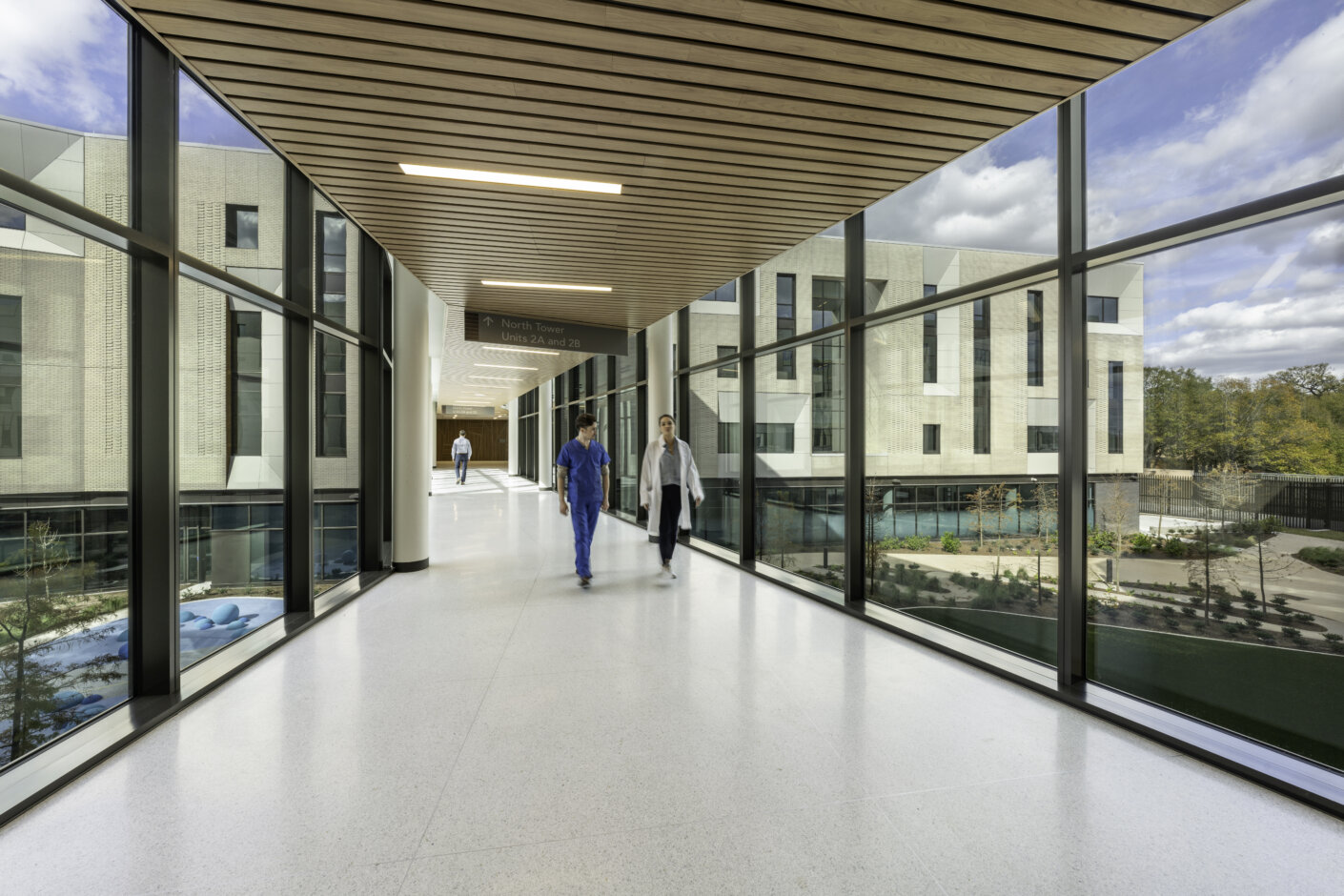
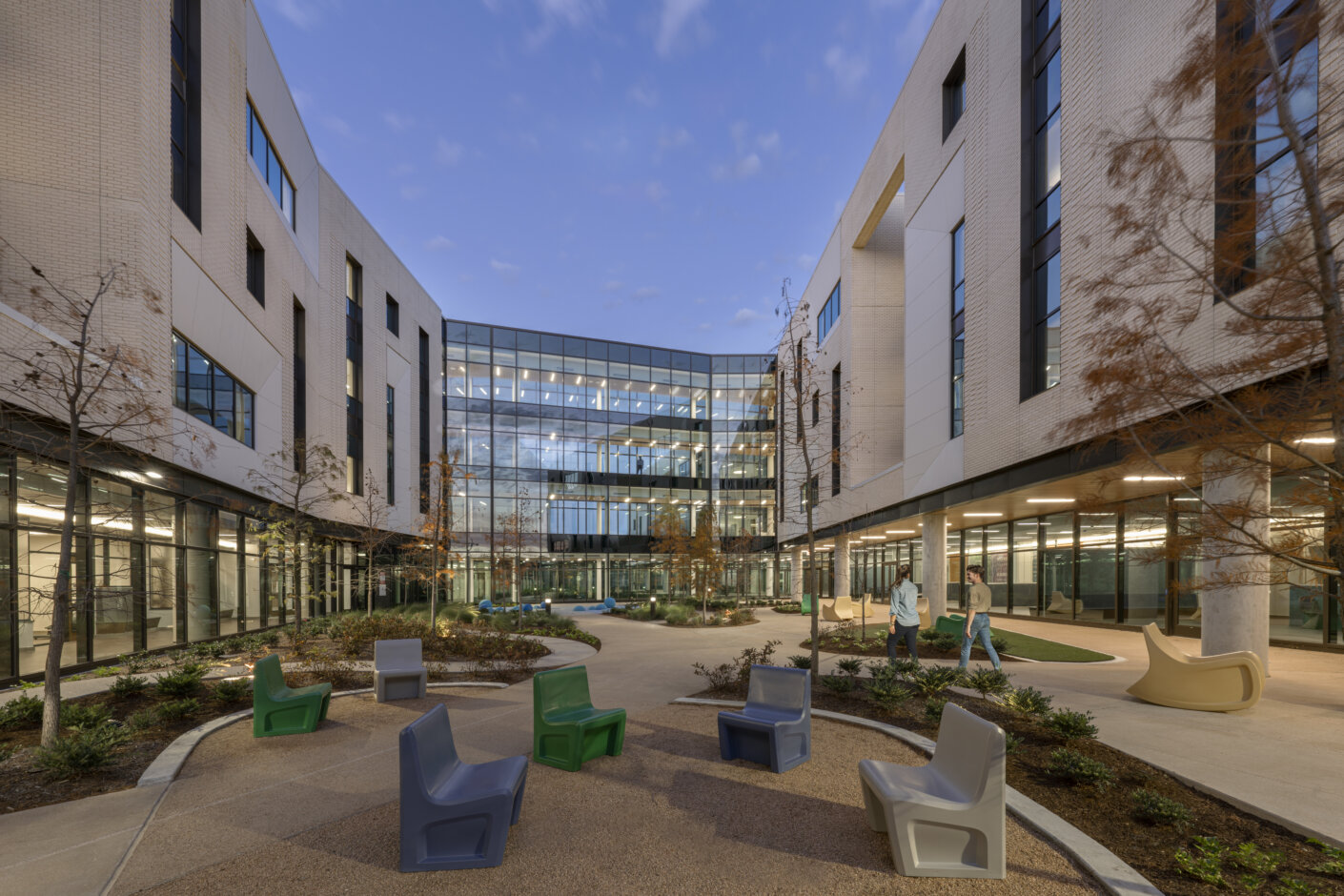
Stephen Glazier, COO, UTHealth Harris County Psychiatric Center
